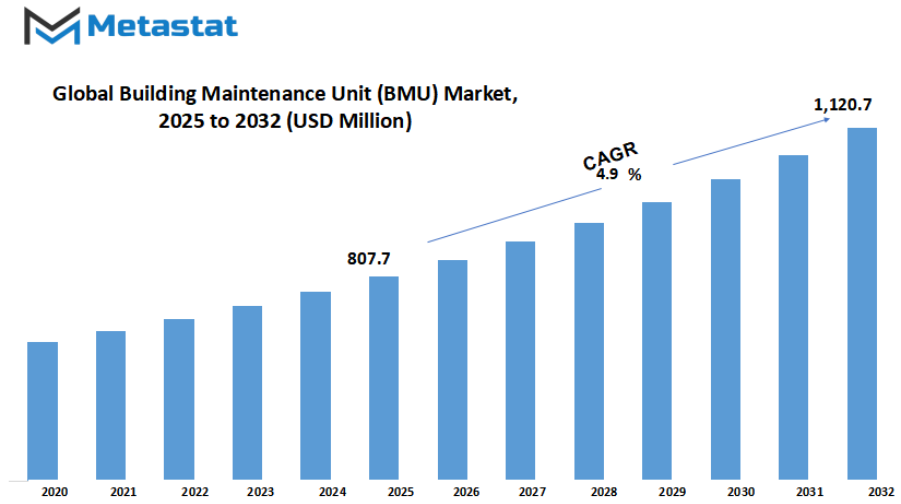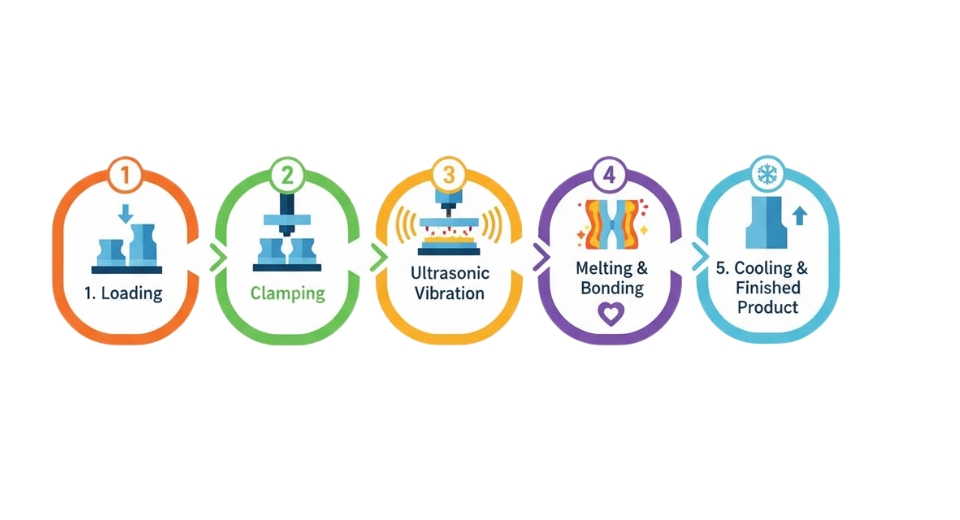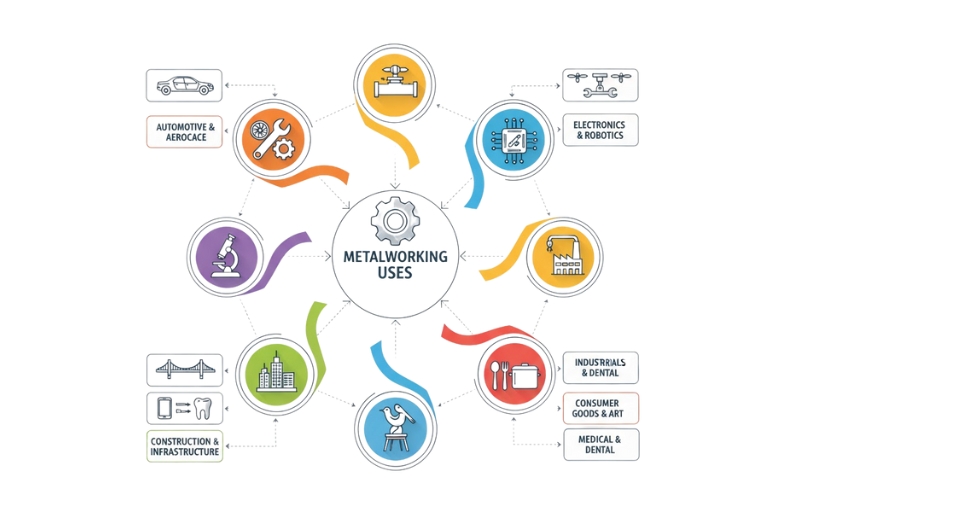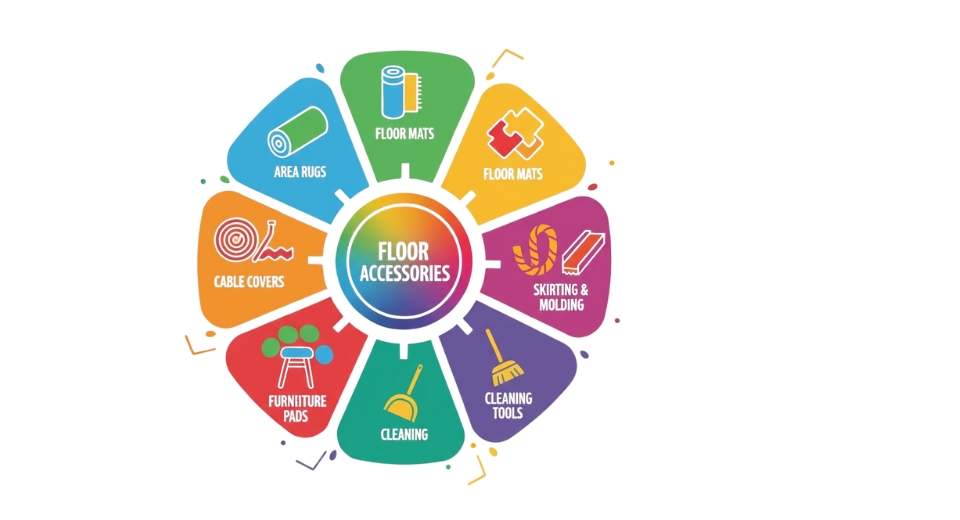MARKET OVERVIEW
The global building maintenance unit (BMU) market is of utmost significance in the construction and upkeep sector. With cities expanding vertically, the demand for effective cleaning and maintenance of high-rise structures becomes more central. BMUs play a pivotal role in maintaining such high-rise buildings as safe for occupants, and the exterior as aesthetically pleasing. In addition, they help in prolonging the lifespan of buildings, and thus, it is a necessary investment for developers and property owners.
The global building maintenance unit (BMU) market is an active and continuously growing industry that contributes significantly to ensuring the security, operability, and beauty of skyscrapers globally. Building Maintenance Units, also called BMUs, are a fundamental element of contemporary architectural design, providing a functional solution for the maintenance of skyscrapers and tall buildings. The evolution of the BMU market is a testament to human innovation and technological progress. During the early stages of high-rise building construction, manual interventions were utilized for maintenance that was fraught with very risky and inefficient practices. The advent of BMUs changed this scenario. Over time, the systems have come a long way from just being simple cradle-like machines to computer-controlled devices with a lot of features. Consequently, these machines are capable of handling a wider variety of tasks, and their use in architecture has been boosted to an even higher level of effectiveness. They come with the cutting-edge features such as automation, multi-axis movements, and extendable arms, so they are extremely adaptable and can fit any architectural creation. The Global BMU market testifies to the flexibility and ingenuity of human beings in the wake of urbanization and a requirement for vertical expansion.
As skyscrapers increase in frequency throughout our urban landscapes, BMUs remain a focal point of maintaining their safety, upkeep, and longevity. With new technology ever available, a focus on safety and sustainability, and an innate importance within today's construction industry, the market for BMUs remains ahead of the curve when it comes to architectural and maintenance services for tall buildings.
Global building maintenance unit (BMU) market is anticipated to hit $1,120.7 Million in 2032, growing at a CAGR of 4.9% from 2025 to 2032.

GROWTH FACTORS
The global building maintenance unit (BMU) market is growing rapidly, with several driving factors involved. The market is crucial for cleaning and maintaining high-rise buildings, and its necessity is escalating. One of the major drivers for the BMU market is the rising building of skyscrapers and tall buildings all over the earth. As the urbanization trend moves forward, the number of high-rise buildings is growing, which is the main reason for this large population. The buildings need to be regularly cleaned and maintained, and BMUs are the lifeblood of this work. The higher the number of tall buildings, the more the need for BMUs will be, and consequently, there will be a promotion of the market growth that will be maintained consistently. Another nudging motive could be the gradual acknowledgment of the requirement for building beauty and maintenance. Owners and managers of properties are the first to be aware of the necessity of maintaining the external look and cleaning of their buildings. A building that is well taken care of is not only presentable but also will last its lifetime.
BMUs play an essential role in maintaining the cleanliness and maintenance of high-rise buildings. Still, the global building maintenance unit (BMU) market has challenges. One of the things that could slow the market growth is the premium initial cost of installing BMUs. Installing the systems could be costly, and this may discourage building owners, especially in financially constrained regions.
Another potential challenge is the need for regular maintenance and skilled operators. BMUs, like any mechanical system, require maintenance to function effectively and safely. Finding and retaining skilled operators for these machines can be a challenge for building owners.
In spite of these issues, the global building maintenance unit (BMU) market is promising. With ongoing urbanization and the construction of more high-rise buildings, the market for these systems is likely to expand. Also, advances in BMU design and operation are making these systems more cost-effective and efficient.
Additionally, the take-up of environmentally friendly and sustainable practices is generating profitable opportunities for the BMU market. With environmental issues becoming more imperative, building owners are looking for sustainable maintenance solutions. BMUs that integrate energy-efficient technology and environmentally friendly cleaning techniques are likely to witness growing demand.
The global building maintenance unit (BMU) market is increasing with the rise in construction of high-rise buildings and an increased focus on building beauty and maintenance. Although the initial cost and maintenance issues are potential challenges, the market is set to flourish even more with the embracement of green practices in building maintenance.
MARKET SEGMENTATION
By Type
The global building maintenance unit (BMU) market is categorized into two major types, viz. Manual Control and Electric Control, each having its own unique value and meaning.
Manual Control in the case of BMUs involves a more hands-on and conventional method of handling these units. It comprises operators' manual efforts to control and move the BMU systems, utilizing manual controls and mechanisms as a norm. Manual Control BMUs are reliable and uncomplicated units. They are inexpensive and ideal for buildings with relatively less complicated maintenance needs.
Conversely, the Electric Control segment is more advanced and automated in its method of BMU operation. Electric Control BMUs have advanced technology and electric systems that enable easier and more accurate control of the unit. Electric Control BMUs are especially advantageous for big and complex buildings, where precision and automation are essential. Electric Control BMUs are more efficient and are generally used for high-rise buildings with complex maintenance requirements.
The choice between Manual Control and Electric Control BMUs depends on several factors. Among these are the maintenance needs of the building, the building's size and layout, budget, and the extent of automation desired. A hybrid method incorporating both manual and electric controls can be used in certain situations to meet the specific requirements of a building.
Finally, the global building maintenance unit (BMU) market segmentation between Manual Control and Electric Control is an indication of the varied needs and preferences in the building maintenance sector. Segmentation offers building owners and maintenance personnel a choice of the most appropriate BMU type that fits the maintenance needs and architectural characteristics of their buildings to enable safe and efficient building maintenance operations.

By Application
The global building maintenance unit (BMU) market is a heterogeneous landscape with multiple applications. A major application is in the High-rise Residential segment. The importance of this segment is the contribution it makes to residential buildings with multiple stories or high-rise buildings, and maintenance and safety.
Another substantial use of BMUs is in the Commercial Building industry. This category serves the upkeep requirements of diverse commercial buildings, including office towers, shopping centers, and other business facilities. Use of BMUs in commercial premises ensures that such facilities are not just functional but also safe and aesthetically pleasing.
Apart from these demarked segments, there is the "Others" segment that captures other applications that may not necessarily fall into the high-rise residential or commercial building segments. The segment shows the flexibility of BMUs in capturing maintenance needs in different settings, like industrial structures, public buildings, etc.
Fundamentally, the segmentation of the global building maintenance unit (BMU) market by application into High-rise Residential, Commercial Building, and Others is representative of the flexibility and relevance of the systems in the sustenance and upkeep of a broad range of structures. BMUs are the backbone of ensuring that buildings in various industries are safe, functional, and good-looking, thereby making them an indispensable element in contemporary construction and facility operations.
|
Forecast Period |
2025-2032 |
|
Market Size in 2025 |
$807.7 million |
|
Market Size by 2032 |
$1,026.5 Million |
|
Growth Rate from 2025 to 2032 |
4.9% |
|
Base Year |
2024 |
|
Regions Covered |
North America, Europe, Asia-Pacific Green, South America, Middle East & Africa |
REGIONAL ANALYSIS
The global building maintenance unit (BMU) market is moving steadily toward growth as urban landscapes continue to transform. Tall structures dominate skylines in both developed and developing regions, and this change creates a demand for advanced maintenance systems. A Building Maintenance Unit is no longer just a support tool for cleaning; it is becoming an essential element in the design of modern buildings. The push for safety, efficiency, and sustainability will shape how the global building maintenance unit (BMU) market develops in the future.
Rising awareness of workplace safety standards and government regulations plays a central role in driving market expansion. In high-rise buildings, safety concerns are constant, and a reliable BMU reduces risks while increasing productivity. As city authorities tighten rules on maintenance systems, the adoption of technologically enhanced units is expected to accelerate. With this, manufacturers are focusing on automation and smart controls to reduce human involvement in hazardous tasks. These improvements not only create safer conditions but also raise operational efficiency, which will appeal to building owners looking for long-term solutions.
The global building maintenance unit (BMU) market is also being influenced by sustainability goals. Energy-efficient systems are in high demand as developers aim to lower the environmental impact of new projects. Lightweight materials, eco-friendly designs, and advanced energy management solutions are shaping the production of next-generation units. The future of building maintenance will not only be about function but also about reducing carbon footprints. Companies that integrate environmental responsibility into their products are more likely to secure a competitive edge.
From a regional perspective, North America is expected to hold a strong position due to ongoing urban development and strict safety regulations. The region’s preference for innovative solutions makes it an attractive market for advanced BMU designs. Europe, with its commitment to sustainability and emphasis on architectural preservation, is also predicted to remain a significant contributor. Demand in this region often centers on customization, where BMUs must adapt to historic structures as well as modern skyscrapers.
Asia-Pacific is forecasted to become the fastest-growing region in the global building maintenance unit (BMU) market. Rapid urbanization, combined with major construction projects in China, India, and Southeast Asia, fuels the need for reliable maintenance systems. High-rise residential and commercial projects are expanding at an unprecedented pace, and this will continue to boost demand for advanced BMUs. Furthermore, local governments are investing in infrastructure projects, which will support the steady adoption of these systems.
The Middle East also presents strong opportunities due to landmark construction projects in cities like Dubai, Riyadh, and Doha. The region is investing heavily in iconic towers, and this naturally creates a rising need for sophisticated BMU installations. Latin America and Africa, while still developing markets, are expected to gradually adopt BMU technology as urban growth increases and building standards evolve.
In the coming years, the global building maintenance unit (BMU) market will be shaped by technological progress, stricter safety requirements, and sustainability targets. Each region will follow its own pace, but the overall trend points toward steady growth. The integration of automation, eco-friendly solutions, and regional adaptation will determine the direction of this market, ensuring its relevance in the future of urban development.
COMPETITIVE PLAYERS
The global building maintenance unit (BMU) market with a variety of major players. Two of them are the major companies FBA, Gomyl, and XSPlatforms. These two major companies are leading in the BMU industry, providing all kinds of solutions and services for fulfilling the requirements of modern building maintenance.
FBA Gomyl is one of the major players in the market of BMU. The large body of experience and skill that the company has gained in the design and manufacturing of BMUs has made them a top pick for many across the industry. FBA Gomyl excels in the development of innovative, tailored BMU solutions based on each building's specific needs. The company's focus on quality and safety is evident in the sophisticated technology and features built into its BMU solutions. This not only guarantees effective maintenance but also the safety of the staff running these machines. XSPlatforms is another highly successful name in the BMU sector.
They specialize in offering a holistic solution for building access. XSPlatforms offers a vast array of products and services, from facade access equipment to fall protection systems. They have experience in the design, installation, and maintenance of BMUs. XSPlatforms prioritize safety as a value, and their solutions for BMUs are designed with the latest safety features in order to safeguard the users as well as the structure of the building. They also show commitment to innovation and sustainability through their products, establishing them as a major player in the market. In the competitive global building maintenance unit (BMU) market, XSPlatforms and FBA Gomyl lead the way through their commitment to quality, safety, and innovation. They provide for the varying needs of buildings that need maintenance solutions so that structures can be reached and serviced with ease, taking into consideration the welfare of those involved. These industry leaders continue to revolutionize and drive the BMU market through their pursuit of excellence and customer satisfaction.
Building Maintenance Unit (BMU) Market Key Segments:
By Type
- Manual Control
- Electric Control
By Application
- High-rise Residential
- Commercial Building
- Others
Key Global Building Maintenance Unit (BMU) Industry Players
- FBA Gomyl
- XSPlatforms
- Atlas Anchor Systems
- Tractel
- Manntech
- CoxGomyl
- Rostek UK
- Andrew Engineering
- Heightsafe Systems
- Atechbcn
- MHE-Demag
- GinD
- Sky Climber
- Jomy
WHAT REPORT PROVIDES
- Full in-depth analysis of the parent Industry
- Important changes in market and its dynamics
- Segmentation details of the market
- Former, on-going, and projected market analysis in terms of volume and value
- Assessment of niche industry developments
- Market share analysis
- Key strategies of major players
- Emerging segments and regional growth potential








 US: +1 3023308252
US: +1 3023308252






